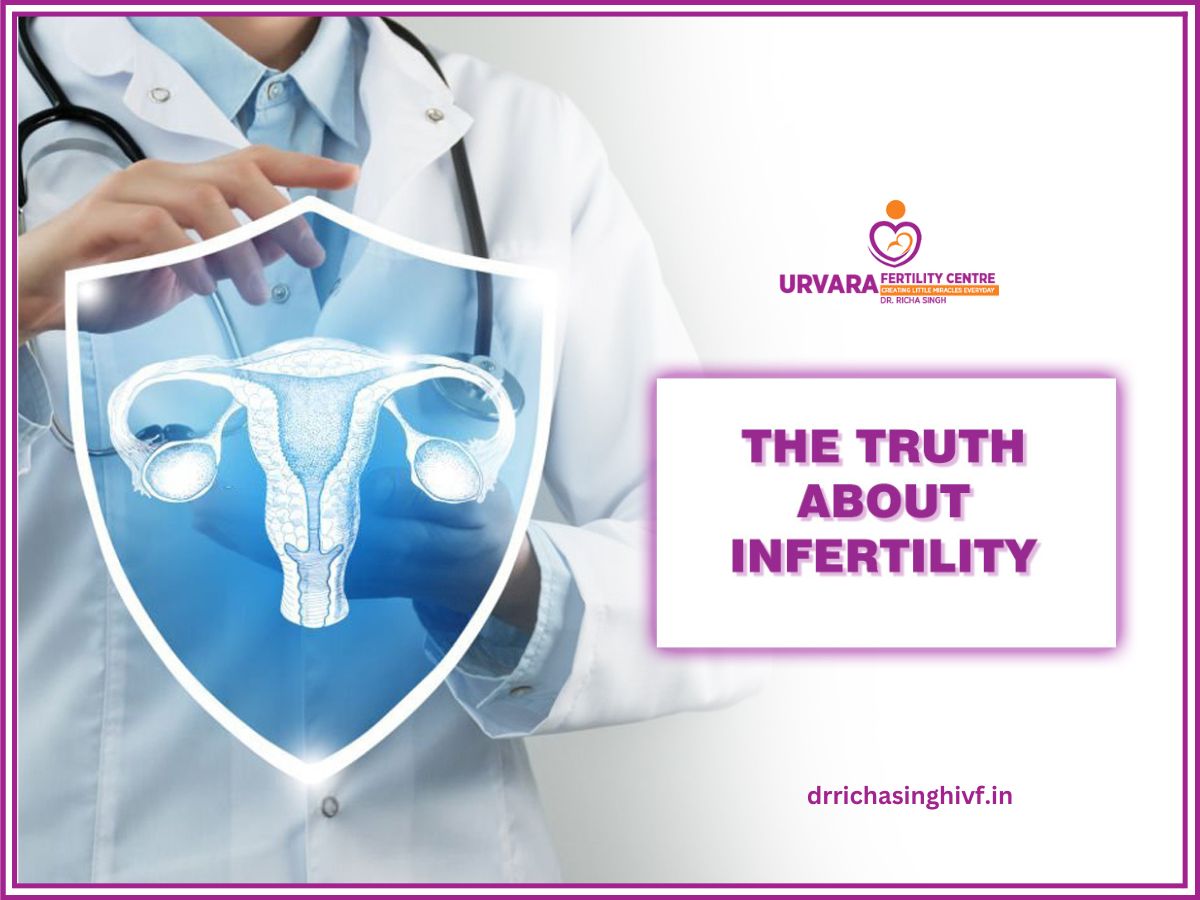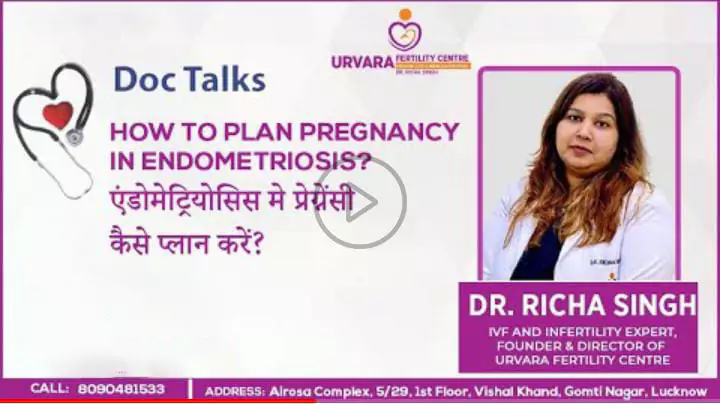The Truth About Infertility (Counselling in Lucknow)
Infertility is a topic that affects many couples around the world. The inability to conceive can be emotionally challenging and can have a significant impact on individuals and relationships. In this blog post, we will explore the truth about infertility, its causes, risk factors, common myths, signs and symptoms, diagnosis, treatment options, support and coping strategies, prevention and get all the information from Infertility Counselling in Lucknow from Urvara Fertility Center. Whether you are personally experiencing fertility challenges or seeking to understand more about this common issue, this blog post aims to provide you with valuable information and insights.
Understanding Infertility
Infertility is the inability to conceive after a year of regular unprotected sex.
Both men and women can experience infertility, with about 1 in 6 couples struggling to conceive.
There are two types of infertility: primary infertility, where a couple has never been able to conceive, and secondary infertility, where a couple is unable to conceive after having a child.
Infertility can be caused by various factors, including hormonal imbalances, structural issues, and certain medical conditions.
Causes and Risk Factors of Infertility
Some common causes of infertility in women include ovulation disorders, blocked fallopian tubes, and uterine abnormalities.
In men, common causes of infertility include low sperm count, poor sperm quality, and problems with sperm delivery.
Risk factors for infertility include age, smoking, excessive alcohol consumption, obesity, and certain medical conditions like polycystic ovary syndrome.
Certain lifestyle choices, such as drug use and excessive stress, can also contribute to infertility.
Common Myths About Infertility
One common myth about infertility is that it is always a woman's problem. In reality, infertility can be caused by issues in both men and women.
Another myth is that infertility is always permanent. While some cases of infertility may be permanent, others can be treated or managed with medical interventions.
There is also a misconception that infertility is always due to a woman's age. While age can be a factor, it is not the sole cause of infertility.
Lastly, there is a belief that stress alone can cause infertility. While stress can impact fertility, it is not the sole or primary cause of infertility.
Signs and Symptoms of Infertility
The most common sign of infertility is the inability to conceive after a year of regular unprotected sex.
Other signs and symptoms of infertility in women include:
Irregular periods
Painful periods
Hormonal imbalances
In men, signs of infertility may include:
Changes in sexual function
Swelling or lumps in the testicles
Hormonal imbalances
It is important to note that some individuals with infertility may not experience any noticeable signs or symptoms.
Diagnosing Infertility
The process of diagnosing infertility typically involves a comprehensive physical examination, medical history review, and various diagnostic tests.
For women, these tests may include hormone level evaluations, ovarian reserve testing, and imaging tests to assess the reproductive organs.
In men, diagnostic tests can include semen analysis, hormone level evaluations, and imaging tests.
Both partners may also undergo genetic testing to identify any potential genetic factors contributing to infertility.
Treatment Options for Infertility
Treatment options for infertility depend on the underlying cause and may include medication, surgery, or assisted reproductive techniques.
In women, common treatment options include:
Fertility drugs to stimulate ovulation
Intrauterine insemination
In vitro fertilization (IVF)
In men, treatment options may include:
Medication to improve sperm count or quality
Surgical interventions to correct structural issues
Assisted reproductive techniques like intracytoplasmic sperm injection (ICSI) Couples May also consider other options such as:
Donor eggs or sperm
Gestational carriers
Adoption
Support and Coping Strategies for Infertility
Dealing with infertility can be emotionally challenging, but there are support networks and coping strategies available to help individuals and couples navigate this difficult journey.
One important aspect of coping with infertility is seeking support from others who are facing similar challenges. Joining a support group or connecting with online communities can provide a safe space to share experiences, emotions, and advice.
Therapy and counseling can also be valuable resources for individuals and couples struggling with infertility. A trained professional can provide guidance, help manage stress, and offer coping strategies tailored to individual circumstances.
It is crucial to prioritize self-care during this time. Finding ways to relax, whether through mindfulness exercises, engaging in hobbies, or taking regular breaks from fertility-related stress, can contribute to overall well-being.
Open communication with your partner is essential. This includes expressing feelings, concerns, and expectations about infertility and the path forward. Couples can work together to establish realistic goals and maintain a strong support system.
Seeking professional help when needed is crucial. Fertility specialists, counselors, and fertility clinics have expertise in treating infertility and can provide guidance on available options and treatments.
It can also be helpful to educate oneself about infertility. Understanding the science, treatment options, and success rates can aid in making informed decisions and managing expectations.
Lastly, exploring alternative paths to parenthood can offer hope. Options such as adoption, donor eggs or sperm, and gestational carriers allow individuals and couples to build families in different ways.
Preventing Infertility
While not all cases of infertility can be prevented, there are steps individuals can take to reduce their risk:
Maintain a healthy lifestyle, including regular exercise and a balanced diet, to promote reproductive health.
Manage stress through relaxation techniques such as yoga or meditation. Practice safe sex and use protection to avoid sexually transmitted infections that can cause reproductive damage.
Avoid smoking and excessive alcohol consumption, as they can negatively impact fertility.
Consider preserving fertility through options such as egg freezing or sperm banking if there are concerns about age or medical treatments affecting fertility.
It is important for individuals and couples who are planning to conceive to be mindful of their age, as fertility declines with age for both men and women. Consulting with a healthcare professional and seeking preconception care can also help optimize fertility and increase the chances of a successful pregnancy.
Conclusion
Infertility is a complex issue that can affect both men and women. It is important to understand that infertility is not always a permanent condition and that there are various treatment options available. It is also crucial to debunk the myths surrounding infertility, such as the belief that it is always the woman's problem or
that it is solely caused by age. Seeking support and utilizing coping strategies can help individuals and couples navigate the emotional challenges of infertility. While not all cases of infertility can be prevented, maintaining a healthy lifestyle and practicing safe sex can reduce the risk. With the help of medical interventions and alternative paths to parenthood, the journey towards fertility can be faced with hope and perseverance.

